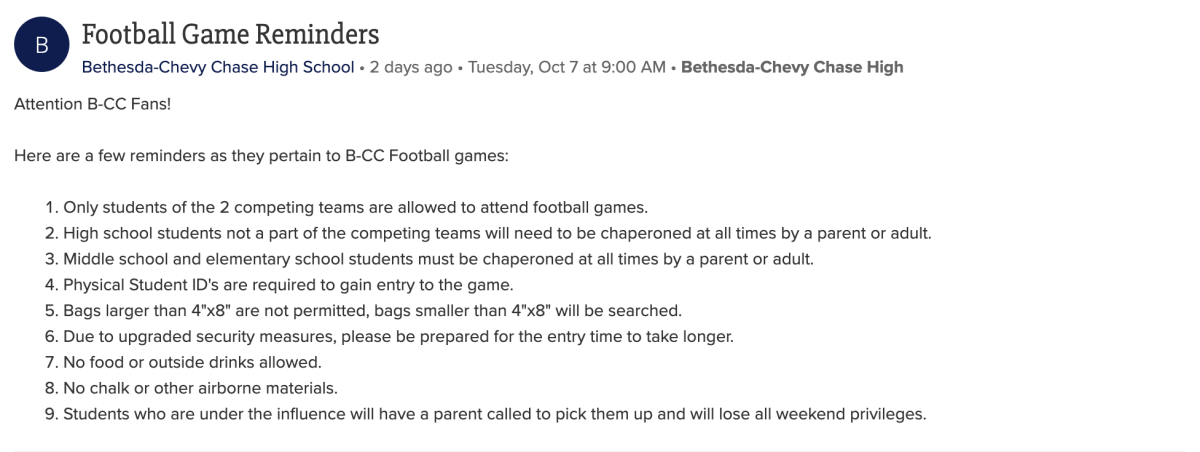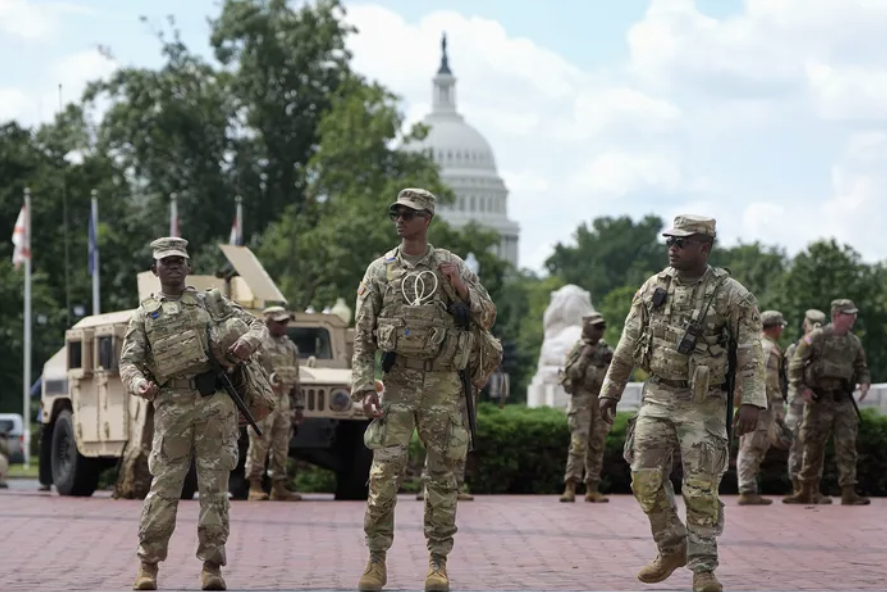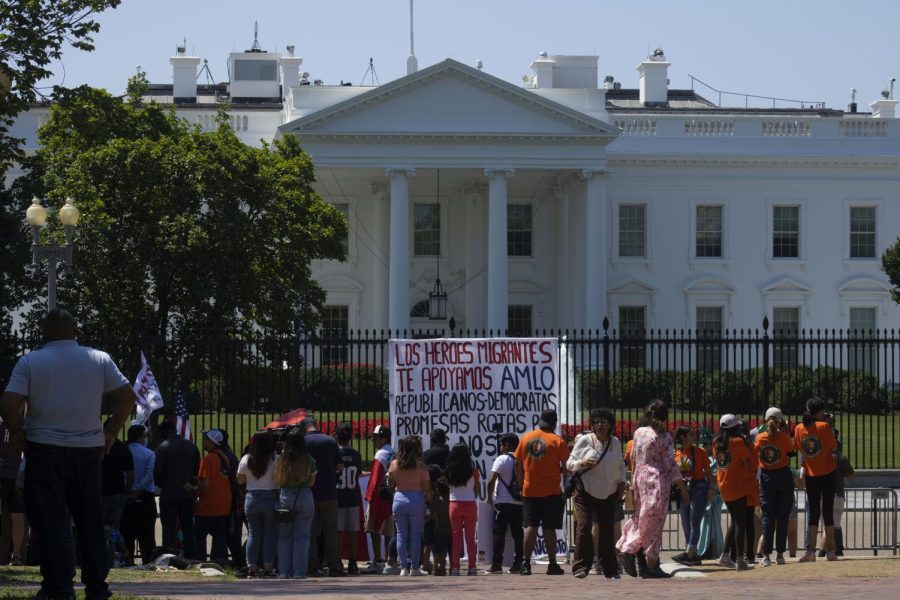Sanctuary Cities: Don’t Let the Door Hit You on the Way In
Migrants should be offered same services as the homeless in DC
People protesting in front of the White House in support of migrants
Hundreds of migrant families, arriving off of sleek silver buses and into our very own hub of democracy, have been steadily trickling into D.C. for the past six months. Sent north by red state governors who don’t want to deal with an influx of immigrants, or simply don’t have the resources to do so, they arrive in the District, a sanctuary city (sanctuary cities serve to prevent persecution of immigrants who may not have papers or legal status, protecting them from being arrested or deported).
Wes Heppler, a staff member of the local non-profit organization, Washington Legal Clinic for the Homeless, spoke with the Tattler about these incoming families, and the ways they are being divided into ‘separate but equal’ status. Except, as we are taught time and time again, separate is never really equal.
“[The city is] just kind of trying to get them to move on to somewhere else,” Heppler remarked, “where we don’t have to put you in our housing and our shelters and our medical care, all of that because we don’t think we can afford it.”
Except we do. Calling ourselves a sanctuary city only does so much, and if we truly want to provide support and resources to incoming immigrants, we have to provide the money and space to be able to do this. Empty words do nothing for these people. They are here. Many of them have been here since April, stuck in this limbo.
“Republican governors are basically saying, ‘well, you’re the one that wants to welcome these arguably illegal immigrants or migrants. Now prove it by giving them all the services and housing that they need,’” Heppler added.
Currently, the migrant families are living in hotels on New York Avenue, including the Hampton Inn and Days Inn, sites that were previously used by the city as COVID quarantine bubbles.
As the hotels were wildly unprepared for housing people like this, they continued to operate as they did during the pandemic: families were forced to stay in their rooms, not even allowed to have their own room keys, and were forced to ask front desk staff for permission to leave and enter at all times.
Heppler recalled visiting the hotels to provide support and resources for migrant children: “The one thing parents are constantly asking is how can I get a job, where can I get a job? That’s another thing that I think the city is just missing the boat on is they’ve got people willing and desiring of doing work.”
In the District, homeless services exist within a Continuum of Care System (COC) which is run by the Department of Human Services (DHS). This system ranges from entrances to low-barrier shelters, rapid rehousing (subsidies), and to permanent housing vouchers. Not every homeless person in the continuum of care will receive every service, but it lays out a crucial pathway to housing security.
The traditional process towards housing, however, is not being offered to migrant families.
“[The migrants] will not get into the COC or the Traditional Homeless Services ladder getting towards housing security. They’ll be in this system known as the Office of Migrant Services(OMS),” Heppler said.
The proposed OMS, which is still in the process of being passed as a bill, will sort migrants into a different system altogether. Initially, this seemed like a good idea; incoming migrants will need tailored bilingual services, ways to funnel their children into schools, find jobs, and culturally centered help to adapt to the community here. So what better way to do that than formulate a different, more accessible system? However, the OMS system disqualifies these migrants from the traditional COC. Permanently. Any associated services, housing support, and health care programs: all become unavailable to them.
Finding a job is a challenge in itself, but even if you have multiple minimum-wage jobs, rent in D.C. is unaffordable. That leaves these families in limbo. If they don’t qualify for the city’s low-income services, subsidy housing, amongst other resources, how much sanctuary do they really have?
Nat is a B-CC senior and is reprising his role as section director of art and photography for the second year in a row. In his free time, Nat enjoys boxing,...











































